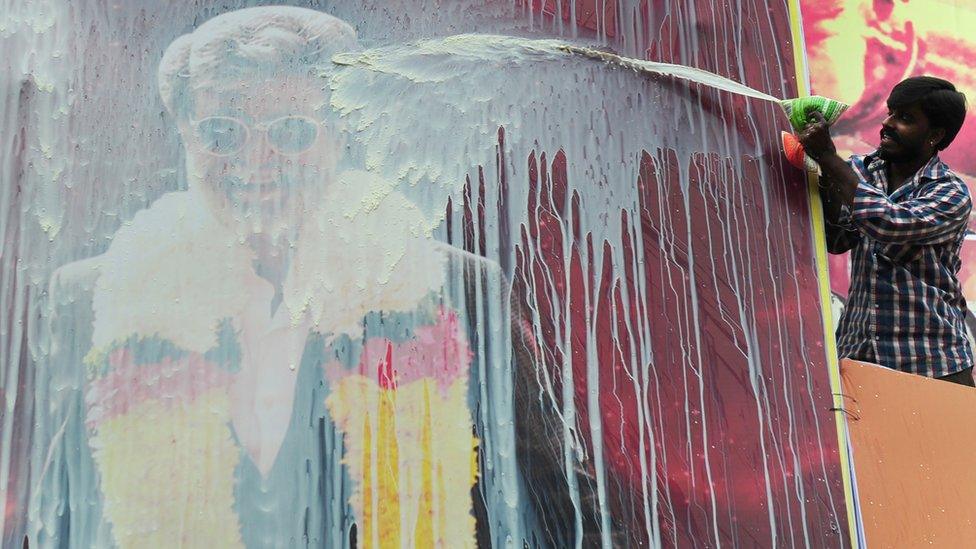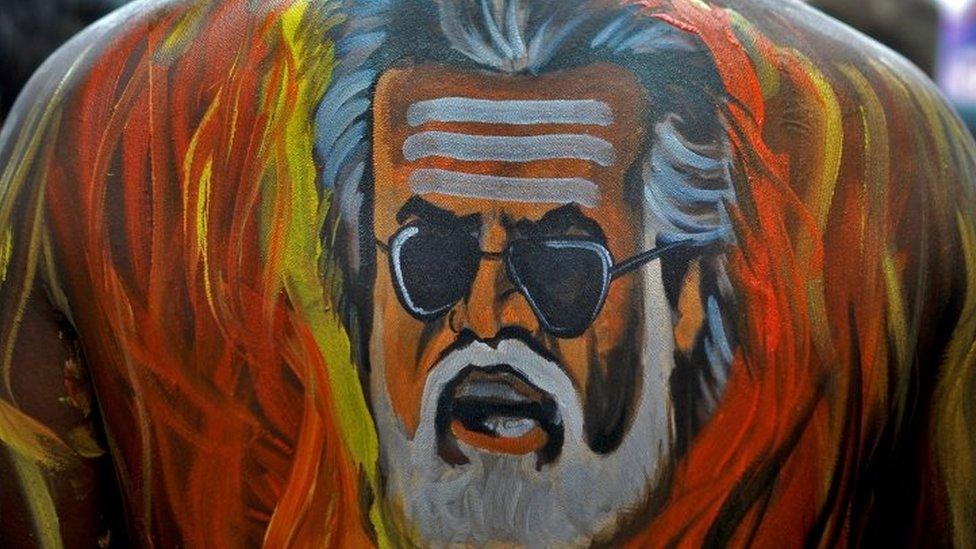Why Indian film fans are stealing milk
- Published

Fans have adopted this practice in the hope that a film will become a hit
Milk traders in the southern Indian state of Tamil Nadu have complained to police over the rampant theft of milk ahead of movie releases in the state.
On certain religious occasions, Hindus pour milk over idols of deities but many fans have adopted this practice in the hope that a film will become a hit.
Milk traders say they face heavy losses as a result.
"It is a practice for worshipping gods - not film stars," the president of the state's milk traders association said.
The situation prompted the Tamil Nadu Milk Dealers Association to register a police complaint on Wednesday, seeking a ban. Police have assured them that "action will be taken".
The ritual, which is called "paalabhishekam", involves pouring milk over huge posters and cut-outs of superstars before the release of their film.
SA Ponnusamy, who heads the association, told the BBC that the craze had been around for more than 20 years. "Fans across the state do it because they equate the stars in the film to demigods," he added.
Packets of milk arrive on trucks from dairy farms early in the morning and are often left outside shops that sell dairy products. Fans steal them as they are left unguarded for a few hours.
On Tuesday, Tamil actor Silambarasan put out a video asking fans to celebrate the release of his upcoming film by pouring "pots" of milk over his cut-outs, which could be found across the capital, Chennai (formerly Madras).
The video went viral, prompting the Tamil Nadu Milk Dealers Association to take action.
Mr Ponnusamy has been campaigning against the custom since 2015 - he even posts on social media groups of different fan clubs to dissuade them from stealing milk. The association has also reached out to Tamil superstars Rajinikanth and Kamal Hassan, asking for their help.
"But it still continues," Mr Ponnuswamy said.
A spokesperson for Rajinikanth, one of Asia's best-paid stars with a devoted fan base, told the BBC that "fan groups aren't controlled by the actor".
"We have requested them not to indulge in this practice but they see it as a form of celebration," he added.

You may also be interested in:

- Published22 July 2016

- Published31 December 2017
